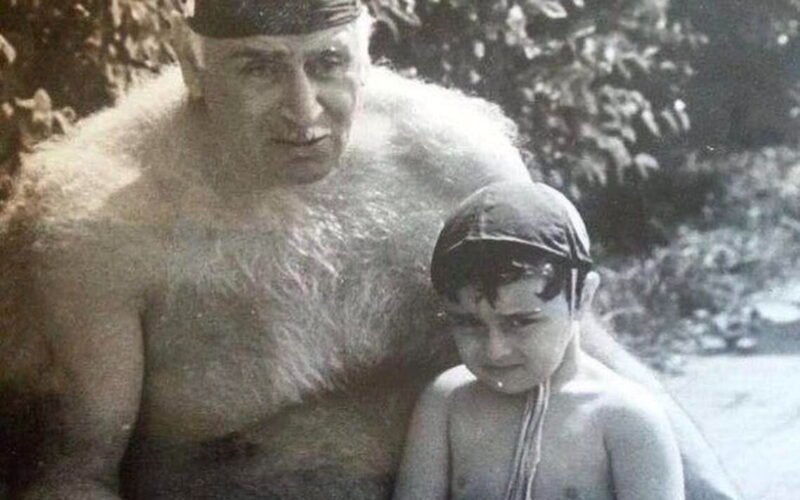Key Facts
| Field | Details |
|---|---|
| Born | March 24, 1929 |
| Birthplace | Tbilisi, Georgian SSR, Soviet Union |
| Sport | Water Polo |
| Position | Centre Forward |
| Olympic Appearances | 1952 (Helsinki), 1956 (Melbourne), 1960 (Rome) |
| Olympic Medals | Bronze (1956), Silver (1960) |
| Club Teams | Dinamo Tbilisi (1948–1958), Dynamo Moscow (1958–1963) |
Early Life
Pyotr Mshvenieradze was born in Tbilisi, a bustling cultural and sporting center of the Georgian SSR under Soviet authority, on March 24, 1929. His love of competitive swimming and ball sports was shaped by the city’s aquatic traditions. Most of his childhood records are lost, but post-war Tbilisi fostered his athletic potential.
| Field | Details |
|---|---|
| Birth Date | March 24, 1929 |
| Birthplace | Tbilisi, Georgian SSR, Soviet Union |
| Cultural Context | Post-War Soviet sports programs in Georgia |
| Early Influences | Local swimming clubs; family support for athletic pursuits |
Olympic Career
Over three Olympiads, Mshvenieradze led the Soviet water polo attack with endurance and skill. He earned vital experience in Helsinki (1952), helped win bronze in Melbourne (1956), and scored five goals in Rome (1960) to win silver. He established his global fame by playing every tournament match.
| Year | Location | Result | Matches Played | Goals Scored |
|---|---|---|---|---|
| 1952 | Helsinki | 7th Place | 9 | 1+ |
| 1956 | Melbourne | Bronze Medal | 7 | Data N/A |
| 1960 | Rome | Silver Medal | 7 | 5 |
Club Career and Playing Style
Mshvenieradze played for two top Soviet clubs, exhibiting versatility and supremacy. He became a Georgian water polo star at Dinamo Tbilisi before leading Dynamo Moscow. He revolutionized centre-forward with his explosive strength, ball control, and strategic vision.
| Club Name | Years | Role | Key Attributes |
|---|---|---|---|
| Dinamo Tbilisi | 1948–1958 | Centre Forward | Explosive strength, powerful shot |
| Dynamo Moscow | 1958–1963 | Team Captain | Tactical acumen, leadership, resilience |
“Blood in the Water” Match
After the Hungarian Revolution, Mshvenieradze faced Hungary in the politicized Melbourne 1956 semi-final “Blood in the Water.” Despite a hostile blow breaking his nose, he followed team orders to avoid revenge. His composure in the face of violence exemplified sportsmanship.
| Date | Event | Opponent | Incident | Outcome |
|---|---|---|---|---|
| Dec 6, 1956 | Olympic Water Polo Semi-final | Hungary | Sustained broken nose; no retaliation | Soviet victory (4–0) |
Net Worth
Mshvenieradze’s personal fortune is unknown because the Soviet Union’s collective economic model did not disclose earnings. State-supported athletes receive training stipends and benefits not private pay. No reputable post-Soviet assessment of his net worth exists.
| Metric | Details |
|---|---|
| Net Worth | Not documented |
| Currency | N/A |
| Disclosure Status | No public records |
| Economic Context | State-supported Soviet model |
Family
Giorgi and Nuzgari Mshvenieradze, Pyotr’s sons, continued his love of water polo. Giorgi represented the USSR in Moscow 1980 and Seoul 1988, while Nuzgari participated at the highest levels domestically and internationally. Their accomplishments demonstrate Mshvenieradze’s lasting impact on water sports.
| Name | Relation | Sport | Olympic Appearances |
|---|---|---|---|
| Giorgi Mshvenieradze | Son | Water Polo | 1980 (Moscow), 1988 (Seoul) |
| Nuzgari Mshvenieradze | Son | Water Polo | Domestic & international |
Legacy and Impact
For his medals and integrity, Mshvenieradze remains a water polo icon decades after retiring. Numerous Cold War-era sports studies have examined his involvement in high-stakes contests like the 1956 semi-final. Today, retrospective displays honor him and inspire aspiring centre forwards in former Soviet republics.
| Aspect | Description |
|---|---|
| Historical Significance | Key figure in Soviet water polo’s rise during the Cold War |
| Commemorations | Featured in retrospective exhibits and sports history publications |
| Influence on Successors | Model of discipline and leadership for modern water polo athletes |
FAQ
Where and when was Pyotr Mshvenieradze born?
Born March 24, 1929, in Tbilisi, Georgian SSR, Soviet Union.
Which Olympic medals did he win?
He won bronze in Melbourne 1956 and silver in Rome 1960.
What was the “Blood in the Water” match?
A dramatic 1956 Olympic semi-final versus Hungary in which he kept his cool despite a broken nose.
Which clubs did he play for?
He captained Dynamo Moscow (1958–1963) and played centre forward for Dinamo Tbilisi (1948–1958).
Who are his children?
His sons Giorgi and Nuzgari Mshvenieradze played water polo, with Giorgi appearing in two Olympics.






